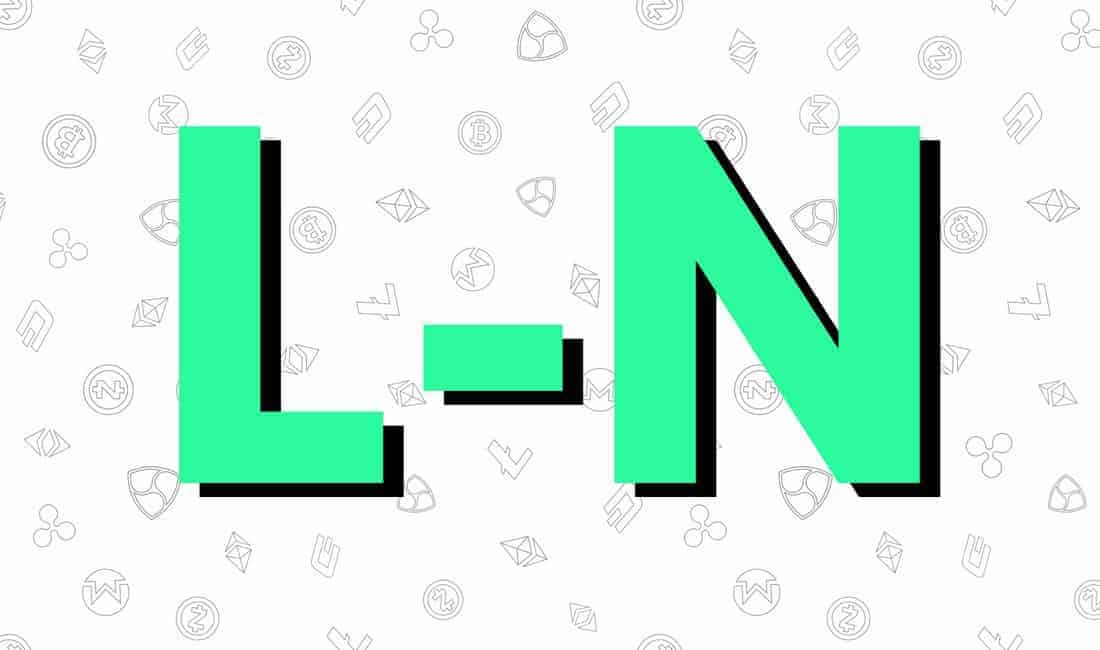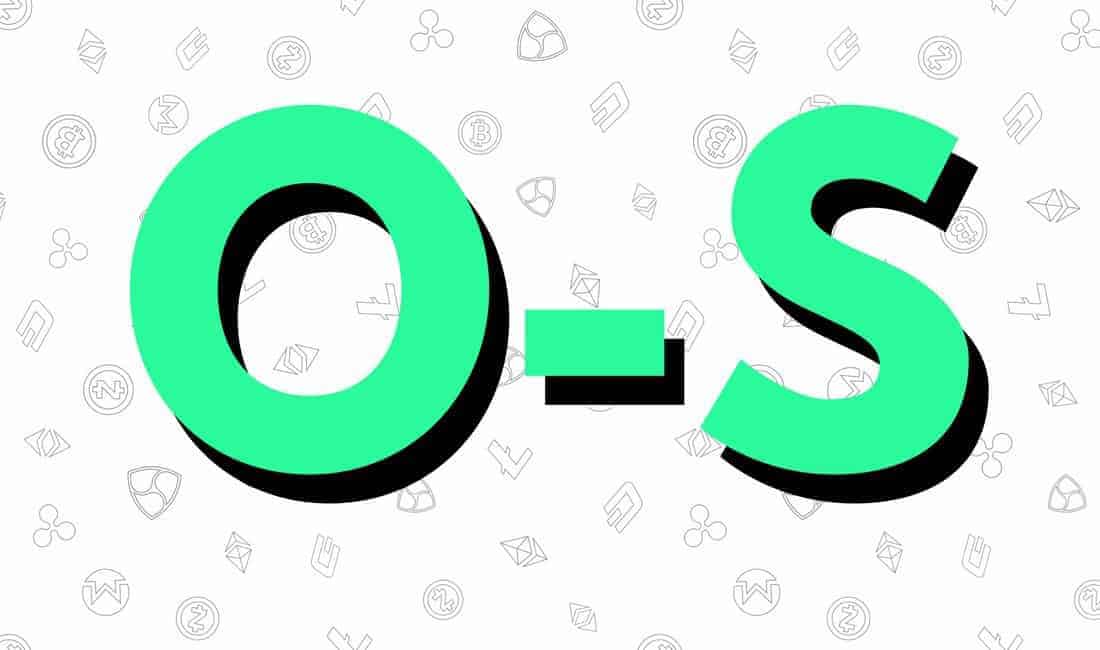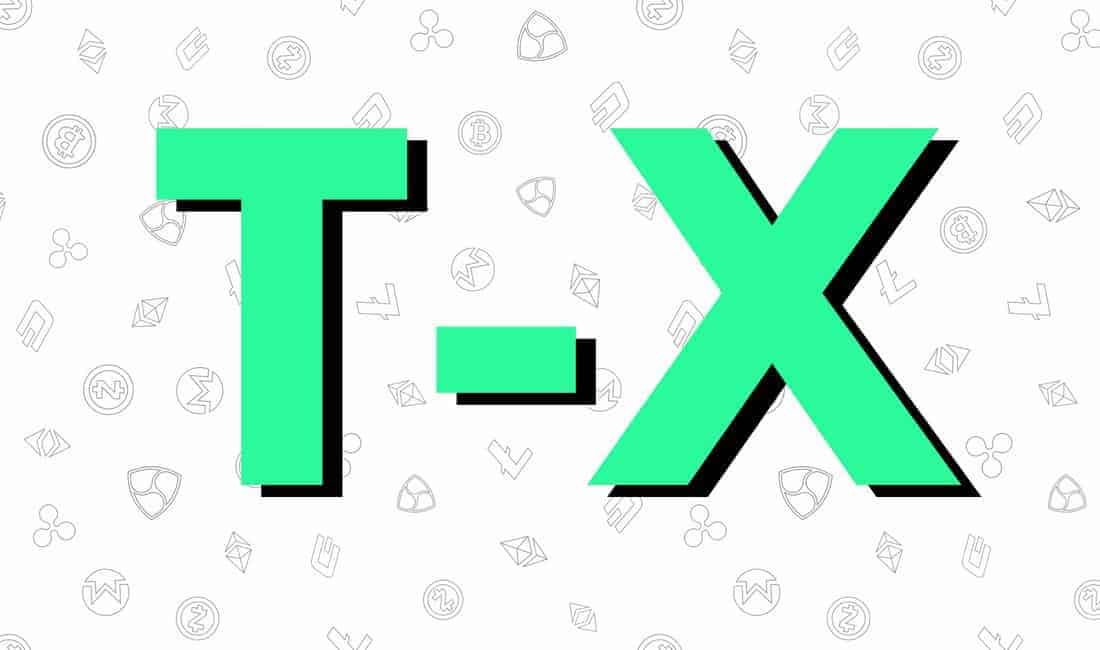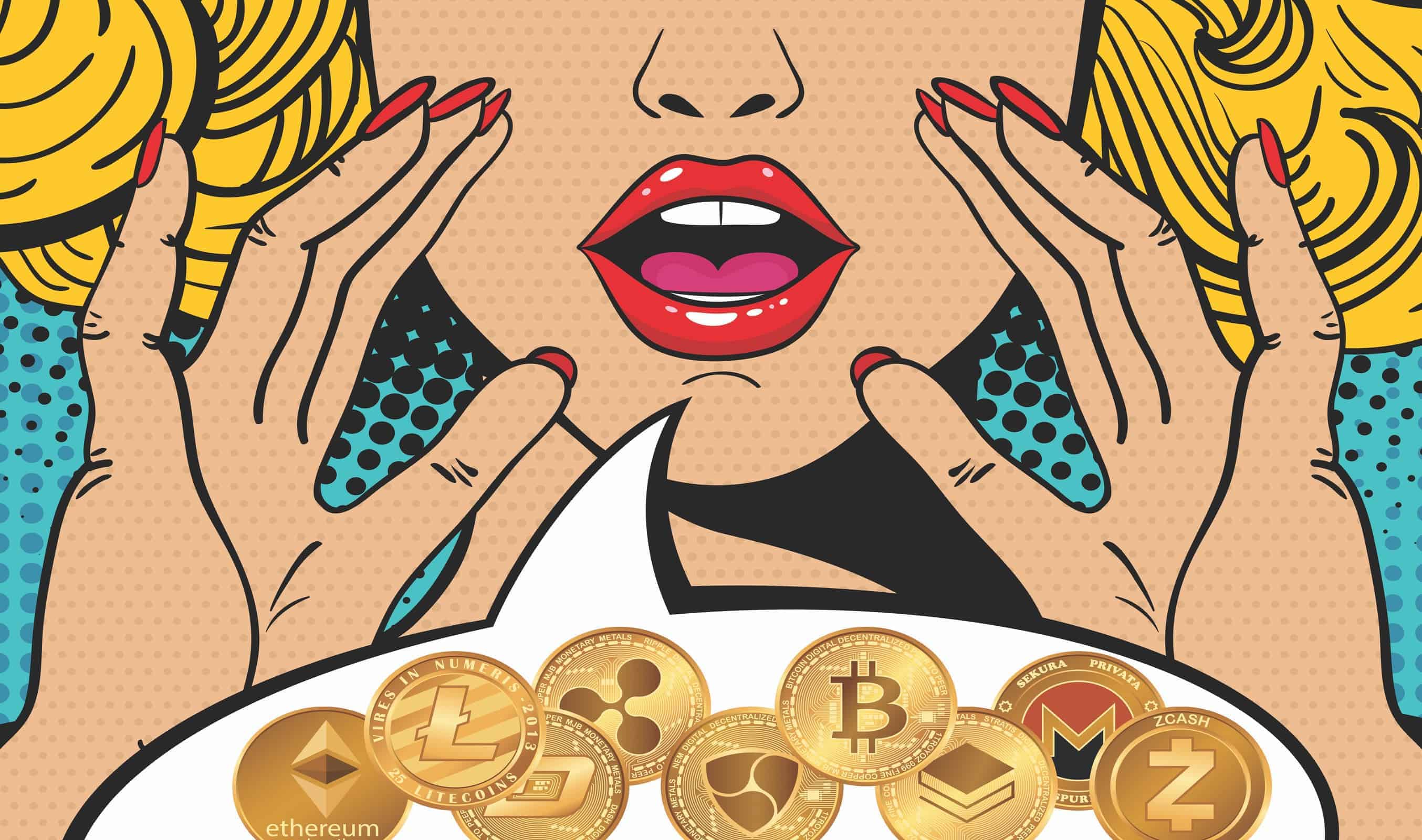Not a crypto-whale or cypherpunk? The overwhelming number of cryptocurrency terms out there might have you yelling, “FUD!” But don’t let crypto FOMO get you down. Like every new invention, cryptocurrency comes with brand new vocabulary. And with Blocklr‘s comprehensive guide to cryptocurrency slang, you won’t be a NEWB for long.
So whether you’re a bear investor, AFI or you just want to know what these new-age cryptocurrency terms mean, we’ve got you covered. Get ready to ride the crypto wave.

All Time High (ATH): The highest price point in history that a token or coin has ever reached.
AFI: “All fucking in” when buying/selling/trading cryptocurrency.
Anti Money Laundering (AML): Rules and regulations aimed at ending market manipulation and other ways of obtaining funds illegally.
Arbitrage: Buying and selling securities at the same time but in different markets or forms. This allows you to use the different prices for the same asset to your advantage.
Bagholder: A Bagholder is someone who holds coins for an extended period of time because they believe they’re worth more than they are.
Bear: Crypto pessimism or skepticism that can describe an individual or a market. A Bear Investor is someone who believes a market is about to drop. A Bear Market is a market which is experiencing falling prices. These are some of the most used cryptocurrency terms on our list.
Bear Trap: A Bear Trap is when an asset’s performance inaccurately indicates a decline in price. But instead of declining, the asset typically stays flat or begins to recover.
Bearwhale: A very specific crypto slang term for a trader who grew anxious when Bitcoin (BTC) began to drop and sold his 30,000 Bitcoin at $300 each. It was such a significant trade that it affected the entire Bitcoin market.
BitLicense: A license issued by the New York State Department of Financial Services (NYSDFS) to conduct virtual currency business activity. To obtain a BitLicense, holders must adhere to certain rules and regulations.
BitConnect: A “high-yield” open-source cryptocurrency that was shut down after authorities realized it was a Ponzi scheme. Though BitConnect closed in January of 2018, some coins remained in circulation after the closure.
Bitshaming: When someone makes fun of a longtime Bitcoin investor who has yet to become rich.
Bollinger Band: These statistical charts show a commodity’s change in price. To calculate the volatility and price, Bollinger Bands plot data in relation to the commodity’s average price.
Bug Bounty: As a security test, companies hold competitions for hackers to find bugs or security issues. Companies will often offer a “bounty” to anyone who succeeds in finding vulnerabilities. Often Bug Bounties have specific criteria which hackers have to meet in order to receive the reward.
Bull: Like Bear, a Bull can describe a market (a Bull Market) or a type of investor (a Bull Investor) in crypto slang. A Bull Investor is someone who predicts a market’s upswing and reacts accordingly. A Bull Market is one in which investors are acting in this manner.
Bull Trap: The opposite of a Bear Trap, a Bull Trap is when investors incorrectly predict that prices will increase. Instead, the market stagnates, contradicting optimistic predictions.
Buy Wall: This occurs when a cryptocurrency’s buy orders exceed its sell orders. And the larger it is, the better. In other words, a Buy Wall indicates that a coin is performing well.
Buying the Dip: “Buying the Dip” is a buying tactic in which investors buy a specific cryptocurrency when its price drops.
BTFD: “Buy the Fucking Dip,” the crass, crypto slang way of encouraging investors to buy after a drop in price.
Cryptojacking: When someone hacks your computer to mine cryptocurrency. Cryptojacking can be very dangerous.
Cypherpunk: Someone who is very invested in crypto, and probably bought Bitcoin before it became popular. Cypherpunks are often activists who advocate for crypto as a means to bring about social and political change. They also came up with a lot of the cryptocurrency terms we use today.

DCA: Dollar Cost Averaging. DCA is an investment strategy. Essentially, it’s when you buy a fixed dollar amount of an investment on a reoccurring schedule, no matter the price. Using DCA, you’re less likely to buy when the price is high in theory.
Double Spend: When someone keeps digital currency while giving a copy of it someone else. Transaction confirmations, stored on the blockchain, keep people from double spending crypto.
DYOR: “Do Your Own Research,” or DYOR, is a common response to people asking for advice when buying, selling or trading crypto. It’s supposed to encourage potential investors to draw their own conclusions on crypto markets.
Faucet: A Bitcoin Faucet is an application or website that offers compensation for completing small tasks in the form of Satoshi which is a hundredth of a millionth of a Bitcoin. Faucets are a way for individuals to earn Bitcoin for free. Though the amounts are small, they can add up if you can complete specific tasks quickly.
Fiat: Fiat money or Fiat currency is a government-backed currency that doesn’t have any intrinsic value. In essence, Fiat’s value fluctuates based on supply and demand.
Flippening: This is when Ethereum (ETH) has a higher market value than Bitcoin.
FOMO: Fear of Missing Out. With regards to crypto, FOMO is the urge to buy or sell because you’re afraid of missing out on a golden investment opportunity.
FUD: Fear, Uncertainty and Doubt, in crypto slang. FUD about a specific coin can bring down its price.
Going Long: Buying with the intent of holding on to your investment for an extended period. This goes along with the assumption that, over time, you’ll profit.
Going Short: Investing with the goal of selling within a short period, only to buy it back at a lower price later.
HODL: Out of all the internet’s cryptocurrency terms, HODL is one of the most used cryptocurrency terms. In short, HODL means holding on to your crypto—even when the market suggests that you should do otherwise. It was originally a typo in an online crypto forum. Today, some people use HODL as an acronym for “Hold on for Dear Life.” It also sound a lot like Hodor from Game of Thrones.
HashCash: Digital cash based on blind signatures. Unlike other cryptocurrencies on blockchain, HashCash is more similar to physical currencies. It’s directly interchangeable with Bitcoin.
Hyperbitcoinization: The theory, also known as H-theory, that Bitcoin will replace all currencies and become the world’s dominant currency. The Satoshi Nakamoto Institute pioneered this approach.
IPFSL: IPFS is an acronym for InterPlanetary File Storage. IPFS is a decentralized method of file storage which differs from traditional networks in a number of ways. Firstly, IPFS files are distributed across a massive network of nodes which store files on the network’s behalf. Furthermore, they operate on a content-addressed system rather than location-addressed. Therefore, each block within the IPFS has a specific hash which indicates its contents. IPFS allow large amounts of files to be stored for free, as opposed to the expensive hosting services provided by tradition networks. IPFS is a safe, simple way to navigate file storage on the web.
Know Your Customer (KYC): When a business verifies its clients, looking into potential problems, risks and illegal activities.

Lambo: Getting rich and buying a Lamborghini with your crypto profits. Lambo is also a way that crypto users inquire about each other’s crypto earnings. It also highlights the crypto community’s penchant for popularizing meme-based cryptocurrency terms.
Laddering: Laddering is the investment strategy of putting in smaller price orders rather than investing all at once. It allows for more flexibility and, in theory, is less expensive. Laddering can also apply to sell crypto investments.
Maker/Taker Fees: Derived from the term “market maker,” a maker is someone who adds liquidity to a market. By comparison, a taken is someone who takes liquidity from a market (meaning buys from the market). If you place an order which processes immediately, you are a taker, whereas if you put a non-immediate order (like a limit order, for example), you are a maker. Though makers and takers have to pay fees, takers’ fees are typically higher.
Margin Trading: When you purchase a significant share using funds that you’ve borrowed from a broken, which you pay back later.
Market Capitalization: Different from the standard economic metric, Market Capitalization (or Market Cap) in crypto means the total value of a specific coin. In short, you calculate a Market Cap by multiplying a coin’s value by the total number of coins in circulation. Like other cryptocurrency terms on this list, Market Cap overlaps with older financial concepts.
MACD: “Moving Average Convergence Divergence” is a trend indicator which helps investors make educated investment decisions. MACD tracks changes in the strength, direction, momentum, and duration of a specific stock or coin price.
Maximalist: Someone who is exceptionally passionate, verbal, bullish or bearish on something. Typically, Maximalists have extreme views and are stubborn in their outlook.
Middleman: Someone who buys crypto solely with the purpose of reselling. They function as an intermediary between crypto owners.
Moon/Mooning: When a crypto’s price goes on a Bull Run, meaning it reaches astronomical levels. You’ll often hear crypto users say “HODL to the Moon.” In other words, hold on to your investment because it’s about to skyrocket.
Nocoiner: Of course, one of the key cryptocurrency terms to know is the word for someone who doesn’t hold any coins.
NEWB: Someone who is new to buying, trading and the crypto community in general.

OCD: Obsessive Cryptocurrency Disorder. In relation to crypto, OCD is when you obsessively check crypto markets.
Pump & Dump: Deliberate market manipulation that occurs when large groups of investors buy at the same time to simulate a market increase and then all dump their investments when the price peaks.
Return on Investment (ROI): What investors are most interested in. ROI is how much an investor profits in relation to their initial investment.
Riding the Crypto Wave: When someone holds on to their investment as it rises and falls in value, similar to HODL.
Rekt: Meaning “wrecked.” This is what happens when you have bad trading luck, or the market goes south.
Sats: Short for Satoshis which is 0.00000001 BTC or a hundredth of a thousandth of a bitcoin.
Shill/Shilling: An unsolicited coin endorsement.
Shitcoin: A term used by the crypto community to refer to an undesirable coin, meaning a coin with little to no value.
Stable Coin: A cryptocurrency that’s desirable because its price and value are stable.
Spoofing: Buying and selling your coins to prove that you have high transaction volume.
Stop Loss: When you automatically buy out your investments if the value of your coin decreases to ensure you don’t lose too much.

TA: Short for Trend Analysis or Technical Analysis. TA is an investment tactic used to predict market shifts. Generally, TA is based on careful analysis of recent trends. Additionally, it operates on the assumption that what has happened in the past will repeat in the future.
To the Moon: An exclamation of excitement for when a whale backs a shitcoin. People will feel like they invested in a coin wisely, though it will likely only lead to short-term profits. Like many other cryptocurrency terms, “To the Moon” is a warning.
This is Gentlemen: A way to announce positive crypto news. “This is Gentlemen” became popular in the crypto world thanks to a meme.
Ticker Symbols: A ticker is a trading symbol unique to every cryptocurrency. For example, BTC is the ticker for bitcoin.
Weak Hands: Originally a gambling term, “Weak Hands” means that you drop your cards, i.e. fold, the moment you think you’re losing. In the world of cryptocurrency, someone with weak hands sells their crypto at a loss rather than waiting for the market to recover.
Whale: Large investors with substantial and varied cryptocurrency investments. These individuals can influence the market.
Vaporware: A virtual asset based on the hype that, in reality, possesses no real value.
__X My Portfolio: When you have made enormous gains on your holdings. For example, you could say “I 10xed my portfolio.” In crypto slang, this lets everyone know that you’ve made some shrewd crypto investments.
Cryptocurrency Terms: A Tongue-and-Cheek Digital Language
All industries, communities, and technologies need their own vocabulary. And since crypto is all three of these things, it has an ever-growing language of its own. Let our guide to cryptocurrency terms, acronyms and inside jokes be your ticket into the world of all things crypto, from Reddit memes to smart crypto investment.


